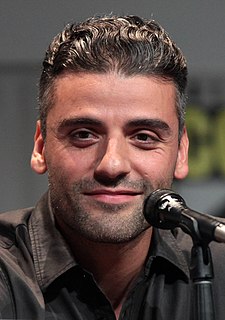A Quote by Tana French
Most animals are pragmatic about mysteries: If they run across something they don't understand, all they care about is whether it's edible and whether it's dangerous. Humans, on the other hand, are drawn to the mystery for its own sake.
Related Quotes
When humans act like animals, they become the most dangerous of animals to themselves and other humans, and this is because of another critical difference between humans and animals: Whereas animals are usually restrained by the limits of physical appetites, humans have mental appetites that can be far more gross and capacious than physical ones. Only humans squander and hoard, murder and pillage because of notions.
The problem is that for almost any feature of humanity that you can name, whether it's the ability to suffer, whether it's the capacity to reason, whether it's having lives that can go better or worse, there are at least some other non-human animals that have all of these features as well. So to exclude non-human animals from the range of moral concern but to include all humans, just seems morally arbitrary.
I saw one of the absolute truths of this world: each person is worrying about himself; no one is worrying about you. He or she is worrying about whether you like him, not whether he likes you. He is worrying about whether he looks prepossessing, not whether you are dressed correctly. He is worrying about whether he appears poised, not whether you are. He is worrying about whether you think well of him, not whether he thinks well of you. The way to be yourself ... is to forget yourself.
So far as this argument is concerned nonhuman animals and infants and retarded humans are in the same category; and if we use this argument to justify experiments on nonhuman animals we have to ask ourselves whether we are also prepared to allow experiments on human infants and retarded adults; and if we make a distinction between animals and these humans, on what basis can we do it, other than a bare-faced - and morally indefensible - preference for members of our own species?
There is no metaphor for death. All comparisons are odious, but I'll do one anyway. We all have these moments of harsh clarity where we realize that something is gone, whether that is youth, whether that is someone we care about, whether that is where we literally lose someone we care about to death. Or we end a relationship that we thought would last forever, or have one ended for us. We all have these moments in life where it seems impossible to fill up the time that we have left for us, and yet we have to do it somehow.
I encourage everyone I know that whether it be in their workplace, whether it be in a political arena or within their own families, to do what their gut tells them to do. And that involves calling it like they see it and tackling the tasks that are at hand and not worrying so much what other people are thinking or saying about them.
I love mysteries. To fall into a mystery and its danger ... everything becomes so intense in those moments. When most mysteries are solved, I feel tremendously let down. So I want things to feel solved up to a point, but there's got to be a certain percentage left over to keep the dream going. It's like at the end of Chinatown: The guy says, 'Forget it, Jake, it's Chinatown.' You understand it, but you don't understand it, and it keeps that mystery alive. That's the most beautiful thing.
Suppose whether or not someone tells me a lie depends only on whether he wants to, but he is morally indifferent, he doesn't care much about the truth or about me, and his self interest, which he worships, tells him to lie, and so it comes about that given his psychology, it is a forgone conclusion that he will lie to me. I think in this case he is still blameworthy, and that implies, among other things, that he did something he ought not do.
Humans are particularly interesting; our culture is incredible, there's no doubt about that. In many respects, no other species matches ours. But in quite a few respects, they do, and that can help us, perhaps, to better understand our own culture. We look at the ways humans are similar to other animals, and at the ways they differ, rather than just saying, "We have culture and you don't."






































